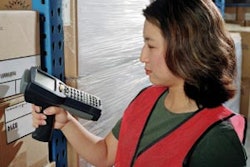Study by Harris Interactive also shows expected reliance on China is dramatic
Chicago — May 5, 2005 — An increasing number of senior corporate leaders surveyed in Europe and the United States recognize the success of their businesses is tied very closely to the effective management of their supply chains, a new poll conducted by market research firm Harris Interactive for UPS shows.
Moreover, 80 percent of the executives surveyed say that China will be playing an important role in their company's growth objectives within the next three years, even though few think their supply chains in China are effective right now.
When asked to rate the effectiveness of their supply chains around the world, 66 percent of the business leaders rated highly their infrastructures in North America, and 47 percent did so for Western Europe. Only 16 percent were comfortable extending a high effectiveness rating to their supply chain in China.
Most of the executives say they are still trying to handle at least some of their supply chain challenges in-house, despite nearly all of the respondents admitting that their companies are not completely prepared to cope with unexpected disruptions. And most also say their CEOs are paying close attention.
The leaders discussed those and other business issues in the survey conducted by Harris Interactive. More than half of the respondents were vice president or higher-level executives who are attending a special symposium in Chicago known as Longitudes '05, or who attended two similar conferences last year in New York City or Paris.
Overwhelmingly, by a margin of 79 percent to 21 percent, the business leaders agreed that effective management of their supply chains would have "a large impact" on the ability of their companies to achieve their strategic objectives in the future. And fully 70 percent of those surveyed agreed their CEO now views supply chain management as either "very" or "extremely" important.
"Growth-oriented business leaders obviously get it," said UPS Chairman and CEO Mike Eskew. "They understand what's at stake. Most of them see China as being very important to their company's growth. The need now is to do a better job of coordinating the flow of goods, information and funds."
A number of the executives surveyed, 37 percent, said their most important supply chain objective was to stimulate sales and increase market share. And by the same percentage, the respondents agreed that better collaboration with suppliers and partners was the single biggest challenge to the effective management of their company's supply chain. Many also admitted their companies are only "somewhat prepared" or "not very prepared" to handle a disruption like a terrorist attack or natural catastrophe.
Despite acknowledgment of these issues and problems, 66 percent of the executives said their companies were still mainly trying to manage their supply chains in-house. And 33 percent added their companies suffered from "unclear lines of authority" for supply chain management.
"The most commonly cited problem in effective supply chain management is forecasting, which is largely a technology issue," observed Eskew. "And overwhelmingly, these executives understand that collaboration between customers, vendors and suppliers is key, and that's also a technology issue."
A supply chain refers to the broad systems maintained by a company to procure materials and finance, distribute and sell products to customers and then handle returns, repairs and recycling. The growth of Internet commerce and the elimination of trade barriers have expanded marketing opportunities around the world for most companies, while at the same time extending production facilities — and the complexity of the supply chain — into countries that may be thousands of miles away from the final market.
According to UPS, the Longitudes conferences are designed to stimulate dialogue about the future of global trade, including its human and cultural aspects, as well as the supply chains and technologies that shape commerce. The symposia are co-sponsored by Harvard Business School Publishing and UPS. This year's included among its participants former President Jimmy Carter; Thomas Friedman of The New York Times; former U.S. Trade Representative Carla Hills; Edward Mueller, CEO of Williams-Sonoma Inc.; Brad Anderson, CEO and vice chairman of Best Buy, and Rebecca Matthias, president and chief operating officer of Mothers Work.
More than 60 percent of the Longitudes attendees surveyed work for companies with revenues of US$1 billion or more, and 55 percent identified themselves as vice presidents or higher. Most of the respondents said their companies had begun expanding beyond the United States and estimated that an average 43.6 percent of their revenue already flowed from non-U.S. operations.
Harris Interactive conducted the online survey on behalf of UPS between April 8 and 15, 2005, among 70 high-level business executives who attended Longitudes '05 in Chicago, or who attended two similar conferences last year in New York City or Paris.












